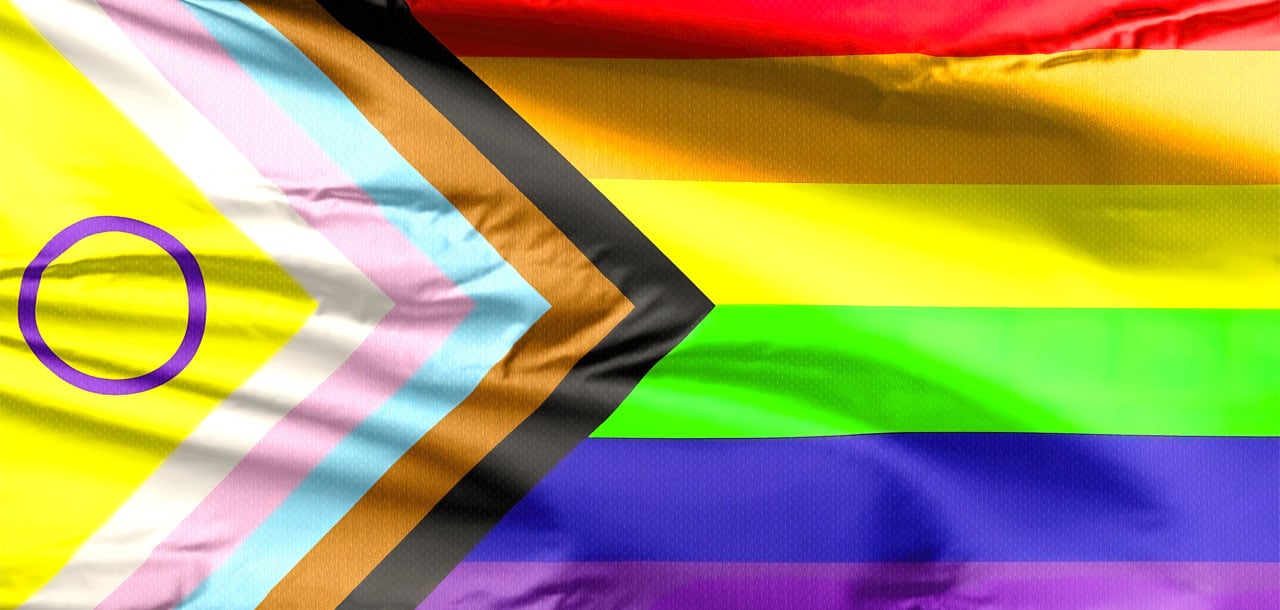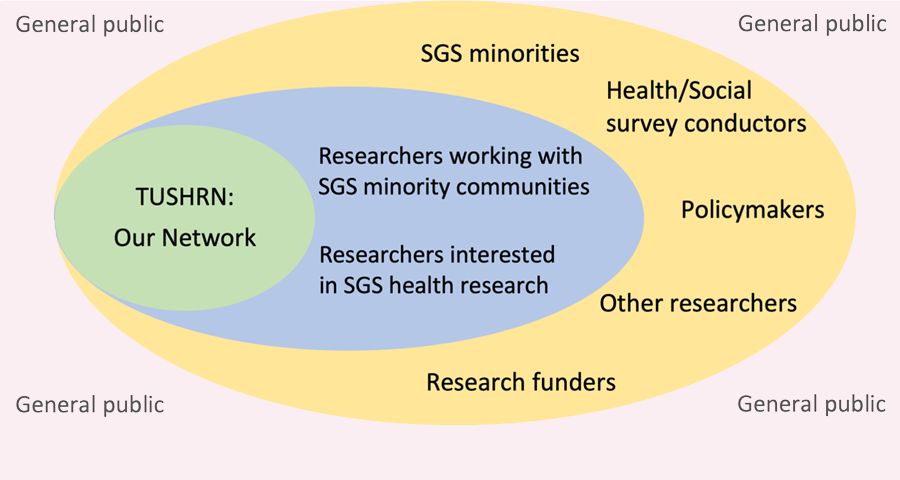The TUSHRN project will develop a sustainable network of sex, gender and sexuality health (SGS) researchers in Taiwan and the UK that can enrich and forward SGS health research in both countries and further afield.
Members of the TUSHRN Network comprise around 60 active researchers (currently 29 Netpal pairs/groups and 6 affiliated members) investigating the intersection of health with diversity in SGS in both Taiwan and the UK.
Marginalisation, oppression and discrimination against people with atypical sex, gender or sexuality (SGS) occurs across the globe. This results in poorer health outcomes for these minorities than for the majority, whether health is conceived of as an absence of disease or as a foundation for living a decent life. Transparent and well-executed research is essential for addressing the health challenges faced by sex, gender and sexuality minorities. Increasingly this is recognised as a global endeavour.
Both Taiwan and the UK are high-income countries regarded as progressive on SGS minority rights in their respective continents, although both unevenly so. Both have diverse communities of academic health researchers investigating many aspects of sex, gender and sexual minority lives. The work we do has impacts across the Sinophone and Anglophone communities.
The aim of our project is to develop a sustainable Network of SGS health researchers in these fields in Taiwan and the UK that can enrich and forward SGS health research in both countries and further afield.
The topic of our project is to co-develop a battery of alternative measures of sex, gender and sexuality that will facilitate cross-cultural queer health research, as well as improve measurement of these human qualities in health care services in both countries.
The four objectives of our project are to:
- Identify researchers in the UK and Taiwan engaged in SGS minority health;
- Create channels of communication for both early-career and established scholars in SGS minority health research;
- Collaboratively develop comparative measures of sex, gender and sexuality that are valid and applicable to future national health surveys in both Taiwan and the UK;
- Co-produce research roadmaps and operational resources for sustainable UK-Taiwan collaborations.
The TUSHRN project is co-funded by the UKRI Economic and Social Research Council (ESRC) and Taiwan’s Ministry of Science and Technology from 2021 to 2023.
The TUSHRN Taskforce comprises eight scholars from diverse disciplines, including sociology, health psychology, anthropology, queer studies, media research, international law, health politics, mental health, public health, implementation science and inter-professional education.
- Taiwan team: Prof Nai-Ying Ko, Dr Carol Strong, Dr Po-Han Lee and Dr Wen Liu
- UK team: Dr Ford Hickson, Dr Sally McManus, Dr Isaac Yen-Hao Chu and Dr Cheuk-Yin Eva Li
Members of the TUSHRN Network comprise around 70 active researchers (including 59 Net-pals and 6 affiliated members) interested in the intersection of health with diversity in sex, gender and/or sexuality in both Taiwan and the UK.
Membership of TUSHRN does not indicate any specific theoretical position on the conception or measurement of health, sex, gender or sexuality. Membership does indicate an openness to enquiry and a respectful attitude towards different views.
Network Members recognise that measurement of (or enquiry into) sex, gender and sexuality occur in a range of contexts (e.g., legal/administrative, clinical/service provision and research/surveillance). The Network takes no collective position on what should (not) be measured, or how, in each of these contexts.
There will be a number of networking activities (including three international visits and two scoping studies) from 2021 to 2023 addressing the project’s four Objectives.
Members in the TUSHRN Network include (in alphabetical order 按照英文姓氏首字母排序):
|
Researcher in the UK |
Researcher in Taiwan |
|---|---|
|
Kathryn Almack |
Jen-Ho Chang 張仁和 |
|
PJ Annand |
Te-Sheng Chang 張德勝 |
|
Michael Brown |
Bo-Wei Chen 陳伯偉 |
|
Kai-Yuan Cheng |
Mu-Hong Chen 陳牧宏 |
|
Isaac Yen-Hao Chu |
Yen-Hsin Cheng 鄭雁馨 |
|
Soazig Clifton |
Hung Chiao 喬 虹 |
|
Anne Conolly |
Piao-Yi Chiou 邱飄逸 |
|
Zowie Davy |
Hiker Chiu 丘愛芝 |
|
Rachel Eastham |
Dau-Chuan Chung 鍾道詮 |
|
Natalie Edelman |
Desmond Deng-Min Chuang 莊登閔 |
|
Rebecca French |
Yvonne Hsiung 熊誼芳 |
|
Ella Guerin |
Chih-Yun Hsu 徐志雲 |
|
Peter Hegarty |
Su-Ting Hsu 徐淑婷 |
|
Brian Heaphy |
Yu-Ying Hu 胡郁盈 |
|
Ford Hickson |
Poyao Huang 黃柏堯 |
|
Jaime Garcia Iglesias |
Yu-Ling Huang 黃于玲 |
|
Gemma Lewis |
JhuCin Rita Jhang 張竹芩 |
|
Cheuk-Yin Eva Li |
Monica Ko 柯乃熒 |
|
Kirsty Liddiard |
Stephane Wen-Wei Ku 顧文瑋 |
|
Carrie Llewellyn |
Pei-Wen Lee 李佩雯 |
|
Alvaro Martinez-Lacabe |
Po-Han Lee 李柏翰 |
|
Oliver Matias |
Charlie Chia-Leen Li 李佳霖 |
|
Mark McCormack |
Chia-Wen Li 李佳雯 |
|
Elizabeth McDermott |
Wen Liu 劉 文 |
|
Sally McManus |
Peih-Ying Lu 呂佩穎 |
|
Catherine Meads |
Cheng-Shi Shiu 許正熙 |
|
Tom Nadarzynski |
Carol Strong 莊佳蓉 |
|
Alexandra Pitman |
Po-Wen Su 蘇柏文 |
|
Ana Carretero Resino |
Ciwang Teyra |
|
Katie Saunders |
Po-Chia Tseng 曾柏嘉 |
|
Joanna Semlyen |
Ya-Ching Wang 王雅青 |
|
Alice Sullivan |
Han-Ting Wei 衛漢廷 |
|
Ben Vincent |
|
Gender in Science & Technology by The Ministry of Science and Technology, Taiwan
An interdisciplinary database on the sex/gender/sexuality-related studies funded by Taiwan's Ministry of Science and Technology.
- Upcoming events
-
UK Team visit to Taiwan
Date: 17-21 April 2023
Taiwan Team visit to the UK
Date: 26-30 June 2023
2nd Taiwan-UK SGS Health Seminar (Hybrid event at LSHTM, TBC)
-
Past events
-
Taiwan Netpal Workshop (at National Cheng Kung University, Tainan, Taiwan)
Date: 8 Jan 2022
TUSHRN Netpal Symposium (Online, Netpal only)
Date: 12 March 2022
Learn more about the Symposium summary.
Taiwan-UK Conference on SGS Minority Health Research (Online)
Date: 16 July 2022
Background
Marginalisation, oppression and discrimination against people with atypical sex, gender or sexuality (SGS) occurs across the globe. This results in poorer health outcomes for these minorities than for the majority, whether health is conceived as an absence of disease or as a foundation for living a decent life. Transparent and well-executed research is essential for addressing the health challenges faced by sex, gender and sexuality minorities. Increasingly this is recognised as a global endeavour. Both Taiwan and the UK are high-income countries regarded as progressive on SGS minority rights in their respective continents, although both unevenly so. Both have diverse communities of academic health researchers investigating many aspects of sex, gender and sexual minority lives. The work we do has impacts across the Sinophone and Anglophone communities.
Aim and objectives
The focus of the conference is how we, as researchers, measure or distinguish categories of sex, gender and sexuality and the implications of this. If appropriate and acceptable, we would ask Netpals to present some aspects/ideas for your collaboration concerning one or more of the following questions. Participants will contribute to the discussion through comments and live Q&As.
- How are sex, gender and/or sexuality conceptualised and operationalised in current health research?
- How do different operationalisations change the findings of the research?
- What categories of sex, gender and sexuality are most useful to policymakers?
- What categories of sex, gender and sexuality are most useful for understanding their natures?
- How does the way we measure or categorise sex, gender and sexuality in health research impact our research participants, data users and communities?
Conference Materials
- Conference Handbook
- Interactive feedback and session summary




